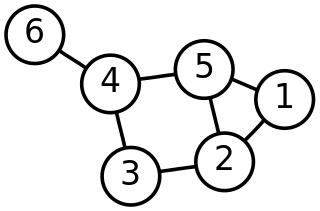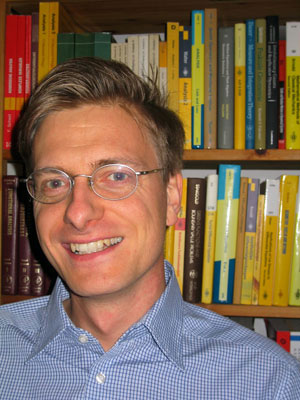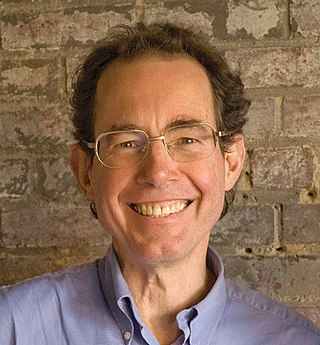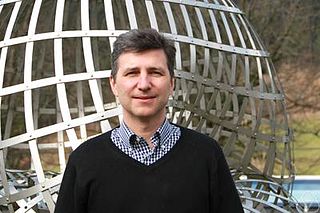Combinatorics is an area of mathematics primarily concerned with counting, both as a means and as an end to obtaining results, and certain properties of finite structures. It is closely related to many other areas of mathematics and has many applications ranging from logic to statistical physics and from evolutionary biology to computer science.

Discrete mathematics is the study of mathematical structures that can be considered "discrete" rather than "continuous". Objects studied in discrete mathematics include integers, graphs, and statements in logic. By contrast, discrete mathematics excludes topics in "continuous mathematics" such as real numbers, calculus or Euclidean geometry. Discrete objects can often be enumerated by integers; more formally, discrete mathematics has been characterized as the branch of mathematics dealing with countable sets. However, there is no exact definition of the term "discrete mathematics".
Combinatorics is a branch of mathematics concerning the study of finite or countable discrete structures.

Lists of mathematics topics cover a variety of topics related to mathematics. Some of these lists link to hundreds of articles; some link only to a few. The template to the right includes links to alphabetical lists of all mathematical articles. This article brings together the same content organized in a manner better suited for browsing. Lists cover aspects of basic and advanced mathematics, methodology, mathematical statements, integrals, general concepts, mathematical objects, and reference tables. They also cover equations named after people, societies, mathematicians, journals, and meta-lists.

Béla Bollobás FRS is a Hungarian-born British mathematician who has worked in various areas of mathematics, including functional analysis, combinatorics, graph theory, and percolation. He was strongly influenced by Paul Erdős from the age of 14.

Egon Joseph Wellesz, CBE, FBA was an Austrian, later British composer, teacher and musicologist, notable particularly in the field of Byzantine music.

Beat Furrer is a Swiss-born Austrian composer and conductor. He has served as professor of composition at the University of Music and Performing Arts Graz since 1991. He was awarded the Ernst von Siemens Music Prize in 2018.
Combinatorics on words is a fairly new field of mathematics, branching from combinatorics, which focuses on the study of words and formal languages. The subject looks at letters or symbols, and the sequences they form. Combinatorics on words affects various areas of mathematical study, including algebra and computer science. There have been a wide range of contributions to the field. Some of the first work was on square-free words by Axel Thue in the early 1900s. He and colleagues observed patterns within words and tried to explain them. As time went on, combinatorics on words became useful in the study of algorithms and coding. It led to developments in abstract algebra and answering open questions.

Gerald Teschl is an Austrian mathematical physicist and professor of mathematics. He works in the area of mathematical physics; in particular direct and inverse spectral theory with application to completely integrable partial differential equations.

Friedrich Heinrich Kern is a German composer, pianist, and glass harmonica player.

Gerhard Präsent is an Austrian composer, conductor and academic teacher.

Bruce Eli Sagan is an American Professor of Mathematics at Michigan State University. He specializes in enumerative, algebraic, and topological combinatorics. He is also known as a musician, playing music from Scandinavia and the Balkans.

Michael Publig is an Austrian composer, pianist, instructor, and music manager. He studied piano with Roland Batik at the City of Vienna Conservatory and Social and Economic Sciences at the Vienna University of Economics.

Mireille Bousquet-Mélou is a French mathematician who specializes in enumerative combinatorics and who works as a senior researcher for the Centre national de la recherche scientifique (CNRS) at the computer science department (LaBRI) of the University of Bordeaux.
Ilse Fischer is an Austrian mathematician whose research concerns enumerative combinatorics and algebraic combinatorics, connecting these topics to representation theory and statistical mechanics. She is a professor of mathematics at the University of Vienna.
Melody Tung Chan is an American mathematician and violinist who works as Associate Professor of Mathematics at Brown University. She is a winner of the Alice T. Schafer Prize and of the AWM–Microsoft Research Prize in Algebra and Number Theory. Her research involves combinatorial commutative algebra, graph theory, and tropical geometry.

Michael Drmota is an Austrian mathematician and professor at TU Wien.

Friedrich Wildgans was an Austrian composer and clarinettist.

Richard Dünser is an Austrian composer of stage works, orchestral music and chamber music, among others.














